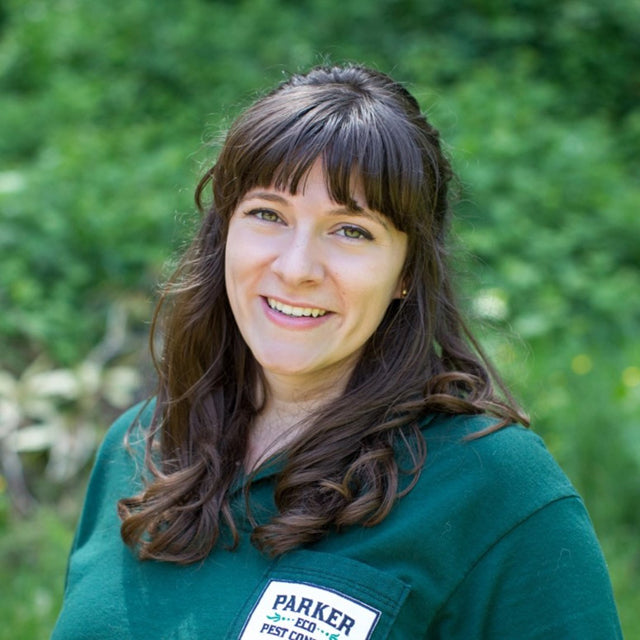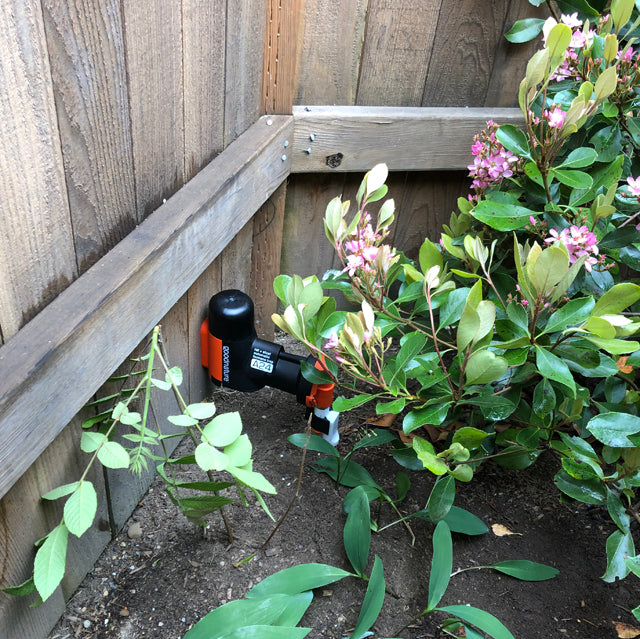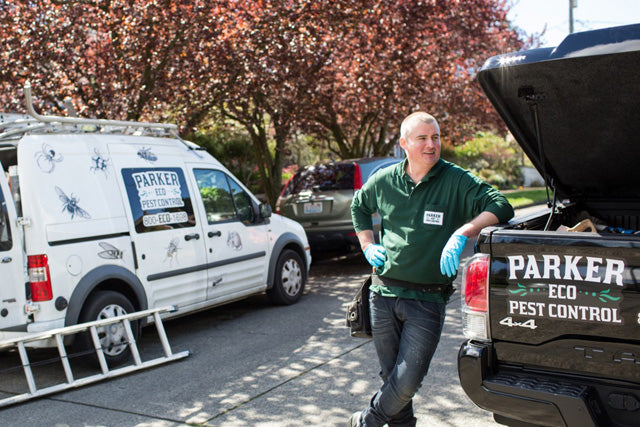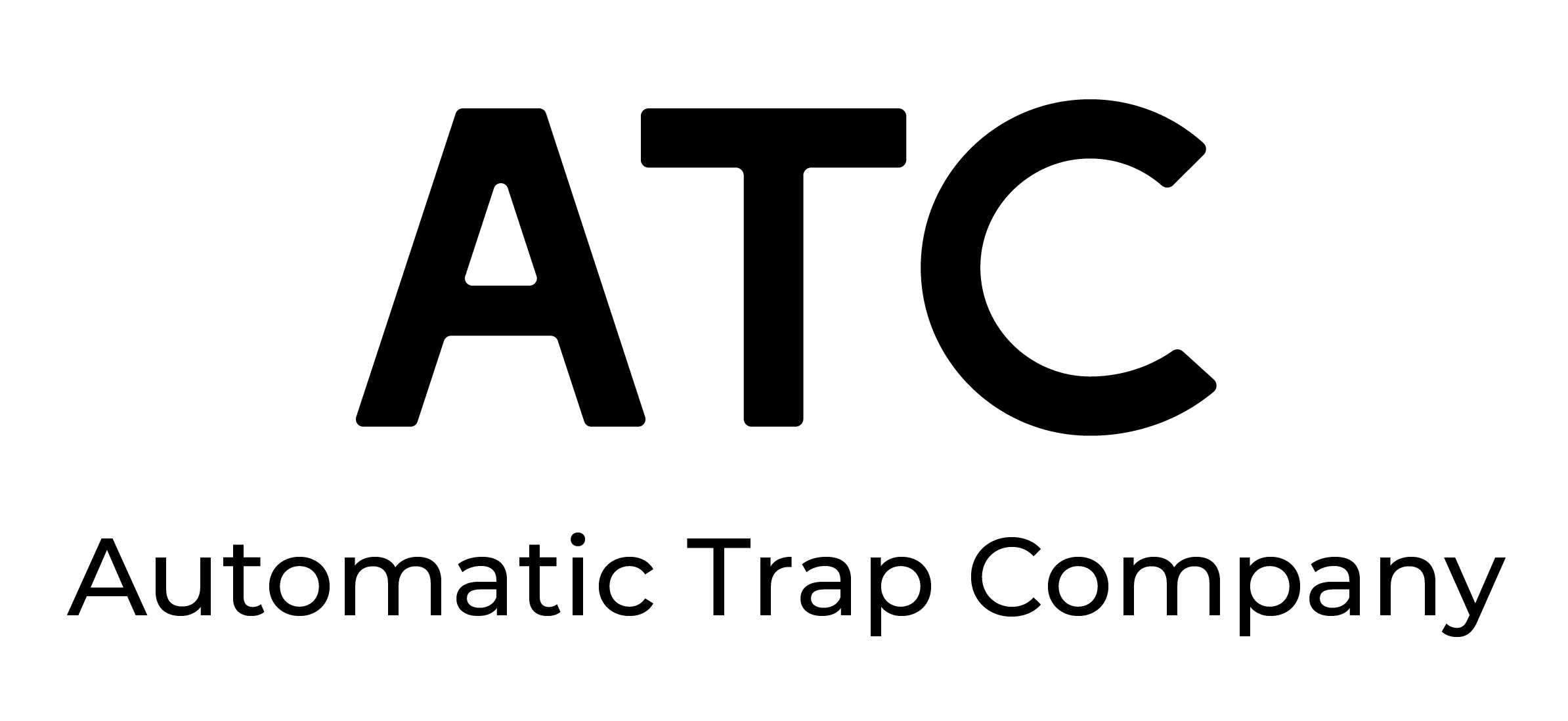
Interview with Parker Eco Pest Control

We recently spoke with Wesley Parker of Parker Eco Pest Control, a company specializing in natural rodent control in Seattle to learn more about their eco-friendly rodent control strategies.
AT: Hi everybody, and welcome back to our automatic trap, A24 interview series. Today we're joined by Wesley Parker of Parker Eco Pest Control. Parker Eco Pest Control is a pest control operator with a commitment to eco-friendly pest control and green solutions. They serve Seattle and its surrounding areas, finding green solutions wherever possible, including the Goodnature A24 — so we want to welcome you Wesley, and thank you for joining us today. We're excited to hear about Parker Eco and some of your experience in the world of pest control, so welcome.
Wesley Parker: Hey Ty, it's great to be here. I'm excited to talk about the trap.
AT: Of course. All right, well let's get into it... Why don't you start out by sharing with us a bit more about yourself and Parker Eco Pest Control.
Wesley Parker: Yeah, I mean you covered the basics. We're an eco-friendly pest control company in the Seattle area. My husband and I own the business. We're a pretty small company so we're still less than 10 people. But we started the business wanting to do something that was really different from what everybody else offered. So as I'm sure you and all of your listeners know, rodenticide is basically the go-to tool that the vast majority of pest control companies push when it comes to solving rodent problems and we didn't like that because of the risk of secondary poisoning. Also, everybody hates it when rats die in their walls. And so we thought, I wonder if there's something better. And so we started looking around and we ultimately landed on the A24 from Goodnature and we've just been moving them like hotcakes. Our customers and us absolutely love them.
AT: Yeah, and I'm guessing that part of that is the area, the geography—the geographic area that you're in. On the West Coast people are very familiar with secondary poisoning and looking for an alternative there. Can you maybe explain some of the unique challenges that you face out of Seattle or the Pacific Northwest in general?
Wesley Parker: Yeah, I mean us, a lot like California, we don't really get super, super cold in the winter, climate-wise here. So there's not an opportunity for a big die-off like there would be in other parts of the country where maybe it gets a lot colder in the wintertime. So we see that rodents are an issue pretty much year-round. And luckily for us, we have a really educated client base here. We have a lot of very conscientious customers who care a lot about doing what's right for the planet. I mean the Seattle public utilities is like the greenest utility in the nation. We do composting, we do all that cool stuff.
It's very much the minds of my clients. And not all of them come to us saying, "I want to do something poison-free." But most of them come to us and say, "I want to do something that isn't going to be harmful." And so we kind of have to educate them on what rodenticide is—what the little black boxes are. That's something that a lot of people don't understand that's a poison in there. So if you look at your neighbor's house and you see those little black boxes, those are rodenticide bait boxes. So we have a really good opportunity in that we have that climate thing that keeps the rodent population high all the time. And the customers who are hungry for something that's a lot safer.

AT: Right. And you know with those little black boxes, it's important to know even poisons and its longterm effects—it's very inhumane the way that rodents are dispatched. So why is it so important to you and your company to dispatch of pests or rodents specifically, humanely?
Wesley Parker: Yeah, we have a lot of clients who are vegan and so they care a lot about how the rodent experiences the death. We even have some clients that ask that we don't dispatch of them at all, so we have some challenges in that remark. But when we educate them about the fact that the A24 is certified humane and that it's a very quick death, as opposed to something like rodenticide. Which to be honest, especially if it's a commercial account like a restaurant, for example, or perhaps it's a Buddhist temple that also has some philosophical concerns around how the rodents are killed—we'll have to tell them, "Did you know that those boxes that are on your property are actually already containing rodenticide? Did you know that this is actually how it's been going on for over a year since you started that contract?" So sometimes we're able to say, "Maybe we're not going to go to a no-kill strategy, but we are going to improve on what you have and get you to a more humane strategy."
AT: I think for a lot of people it's an out of sight, out of mind kind of thing. And then once they learn and they get their hands a little dirty they start to understand. Especially with rodenticide, it's often quite brutal the toll that it takes. So for you guys specifically—what is the most common pest that you guys deal with?
Wesley Parker: We see the Norway rat and the Roof rat—just like honestly, probably most of the United States—are really big here for us. The Seattle area is really, really green. There's stuff growing absolutely everywhere. The trees are super lush and all of that adds up to kind of a rat highway from all those food sources on the ground, all the food sources in the trees, and then they just climb right onto your roof or to go into your dirt crawlspace, because a lot of the houses in our area don't have full basements.
So when we talk about exclusion being obviously the greenest and most eco-friendly thing you can do, right? Just seal your home in such a way that there's no access for rodents. When you have a dirt crawlspace, exclusion sometimes means getting a rat slab for $5,000- $7,000 and if your listeners aren't familiar with what rat slabs are, it's a non-structural pour of concrete that's just a couple inches thick that basically gets poured into your crawl space so that there's a physical barrier, so they can't enter. But $5,000 for a rat slab or can we just do some ongoing trapping? Can we install an A24 in your back shed, for example, in an area that's really secluded and cozy where we know they're going to feel comfortable feeding and suddenly the math on that makes a lot more sense.
AT: Yes, exactly. So where did your team first hear about Goodnature and about the A24 in particular?
Wesley Parker: Yeah, my husband and I, our business has only been around for about four years, so we're still a pretty young company and so we're super open to finding new products and new solutions that help us be greener, more efficient, more humane. And he found an article about the A24 online when we were looking into just the gamut of different types of traps that we can invest in. So we actually bought one for ourselves as our first try because we're lucky enough to have a dirt crawlspace at our house, and we know we had a rat issue when we bought the house. That was the super obvious, but obviously we were ready to take on the job.
So we bought the A24 with the counter for our property and we were just amazed at how many hits we were getting. And then what we love about the version with the counter which is actually all we buy now—we only buy the one with the counter because we just love showing people the data. We could see, you're getting this many hits at the initial install and then you can see the hits go down over time as the population on your property decreases. So, it's just so much more tangible than rodenticide where you might have one really dominant rat that comes in and eats the whole lot. You don't actually know how many rats you were able to control when you bait with rodenticide, whereas the A24 this is completely unambiguous.

AT: Mm-hmm, yeah, a lot of people do like that... It's almost like a KPI or an analytics number that they can use when controlling their rat population. So how does your team use a Goodnature products specifically? I know you had mentioned the crawl space for yourselves, but how did it branch out into usage for your team?
Wesley Parker: Yeah, so our team has an A24 in their van at all times, every single technician. And what that means is if they come to a house for a rodent inspection, especially if the client's only seen rodents outdoors, if they haven't had any activity in the house, then exclusion—maybe there's proactive exclusion that can be done or maybe they just need something done on the exterior of the house. So whereas traditional pest control companies would drop some bait boxes, we say, "How about instead of paying us to come back here on an ongoing basis, you buy this trap from us now, we'll help you find a place on your property that's really well-suited." So we find that the trickiest part is just knowing where rodents are going to feel comfortable feeding because you cannot just put a stake in the middle of a field and stick this trap on it right? Nobody wants to eat in the middle of the field.
So yeah, we'll do basically a consultation and an installation, and we'll check in with you and see how many hits your counter has had. If maybe you haven't seen any hits, after about two weeks, we'll come back and we'll move it. Sometimes we'll take foliage and arrange it around the trap so that it has a little bit more natural feeling cover to it. So we basically have a 100% success rate in selling these traps. If ever there's a situation where a client has not been satisfied, it's typically because they've wanted it to be in a really particular spot on their property. And we've had to come back and say, "Maybe we should move it to the back of the garage, like we talked about."
AT: Right, right. So is that deciding where to put the trap? For most consumers it ships with the Goodnature Lure Tasters. Do you guys kind of decide just based on your experience and kind of... What are the factors—the criteria that goes into making that decision?
Wesley Parker: Great question, for most homeowners…
AT: Or is that kind of the secret sauce?
Wesley Parker: Oh no, by all means, I'm always willing to give people the secret sauce for free, because a lot of people don't want to deal with a rodent issue themselves, right? Even if it's just a matter of sealing off holes and stuff like that, maybe you got to go by the ladder, maybe... There's all kinds of stuff that they're just not willing to do themselves or don't have time to do themselves. So we find that even if we do give people our secrets, they tend to call us back.
So as far as the trap placement goes, we always recommend that it's installed in an area with natural cover. So if you have bushes, areas that have... Maybe if you have debris piled up against the side of your house, and maybe you're not willing to move that debris or maybe you have a canoe leaning against the side of your house, sticking it underneath things is really important. Also getting the height right. So we've seen when people do their own installs, sometimes they put them too high off the ground or too low, so it's not at a comfortable feeding height for a rat. Especially if they think they have mice. Because if you think you have a mouse issue because maybe you haven't identified the droppings properly or also psychologically, maybe you just would really like to have a mouse issue instead of a rat issue.
AT: Right. Yeah, most people would.
Wesley Parker: Yeah, that's something that's pretty common. Basically they're imagining a mouse height, not a rat height and so the installation maybe isn't optimized exactly the way that we would. So definitely an area with cover where they feel comfortable feeding. And then if we are able to see classic signs of rodent activity, like tunneling, grease marks, droppings obviously, any sort of gnawing may be on your crawlspace—anything that's going to show us this is a common trail is a good indicator that we will have success with a trap in that area.
AT: Great. Yeah, those are awesome tips. What does your team like specifically about using the trap?
Wesley Parker: I think the number one thing we like is that it's poison-free. Our clients don't want to use poison. We have a little flyer printed up that's got all of the information on how the A24 trap works. And then on the other side, we have some educational material from the state of California about how rodenticide impacts the wider environment—even in urban areas. So it's got a nice diagram that shows the flow of that poison from the bait box directly if something gets access to it that's not a rat or through secondary poisoning, if the rats are consumed. So the fact that people maybe have talked to other pest control companies that just say, "Put out poison, put out poison." We can come in and say, "Here's an option that's not poison." And they can feel good about it, and also not have rats in their house.
AT: Yeah, exactly. And not have to go out and reset the traps every time that they have a hit as well, right?
Wesley Parker: Yeah, of course. And the fact they don't have to clean it up. So people who know that they can just set it and forget it for six months at a time. And the fact that their refills are a very low cost. It's a very easy thing that any homeowner can do on their own as long as we get that placement correct at the onset so that you're kind of set up for success.
AT: Absolutely. And I think that really the key is, a lot of people will see the video online and think it's just a beacon for rats, but you really still do have to think like a trapper and finding that proper location and optimizing your trapping areas. That's where you're really going to have success. Start thinking like a rat.
Wesley Parker: One of the main complications that we see is that people with chicken coops… So obviously when you have a chicken coop, the rats have a lot of other food sources because they're able to eat all the feed that gets scattered for the chickens. So one of the things we like to do is actually take the chicken feed and put that in the bait cup. So if that's what the rats are used to eating, let's make that the bait for the trap.
AT: Yes, we definitely recommend that as well with the DIY basket using chicken feed or grain whatever is being used there. And also cleaning that area around there with a shop vac. Just eliminating any food competition, especially in an area of high competition, like a chicken coop. That's a great example.
Wesley Parker: Yeah, although if you tell chicken owners to clean up their feed, I generally don't see a lot of … Chickens are a lifestyle.
AT: Yes, and unfortunately rats make a lifestyle from those chickens.
Wesley Parker: We've even thought about trying to go door to door to people who are... Because we don't do any door-to-door sales, but when it comes to chicken coops, we've thought about. If we have a client with a neighbor who's got a chicken coop, do we just go and establish a relationship with that chicken coop owner and the three houses around it for example, to say, "Okay, moratorium on birdseed for three months, moratorium on spraying the chicken feed on the ground, just give us a little bit of time chicken free, and then we'll see where we can go from there."
AT: Right, exactly. Well lastly, we just want to know what's next for Parker Eco Pest Control and where can people find you online?
Wesley Parker: Yeah, so our website is parkerecopestcontrol.com. Anybody can book an appointment online anytime, even if it's two in the morning. Log on, find yourself an inspection time, and we'll be there. We're growing but very, very carefully. We only want to hire the best technicians that we can who are going to give you the best advice possible. So I'd say even if you just need advice, give us a call.

AT: Awesome. Well, again, we want to thank you for being with us today, Wesley, and we look forward to catching up in the future.
Wesley Parker: Thanks for your time, Ty.
AT: Thank you.
- Choosing a selection results in a full page refresh.
!



